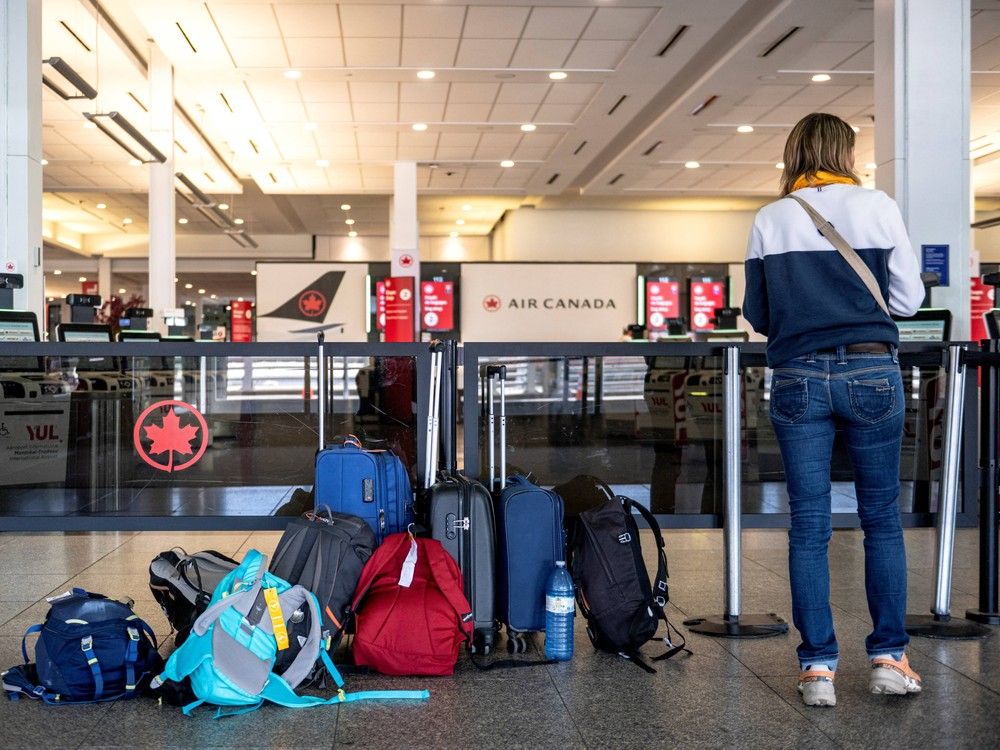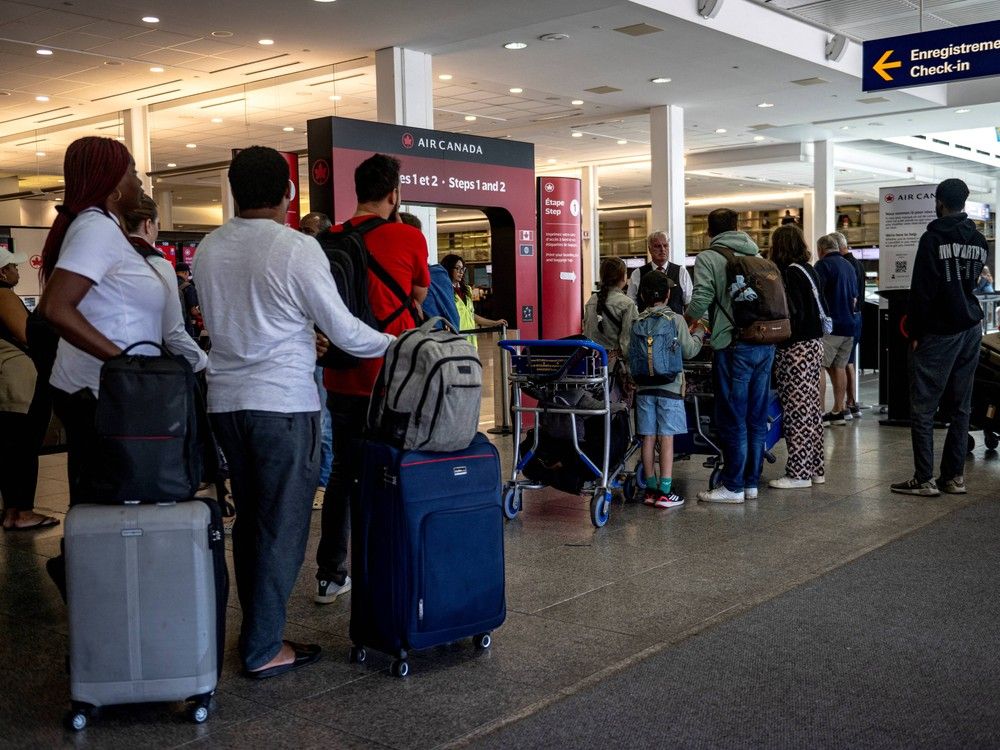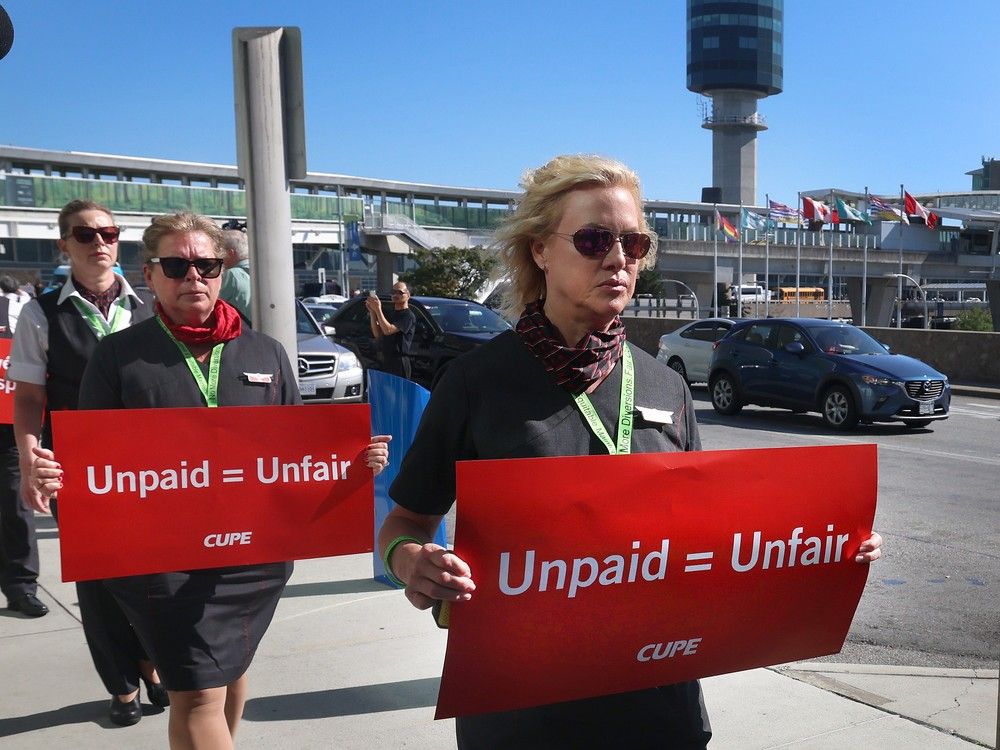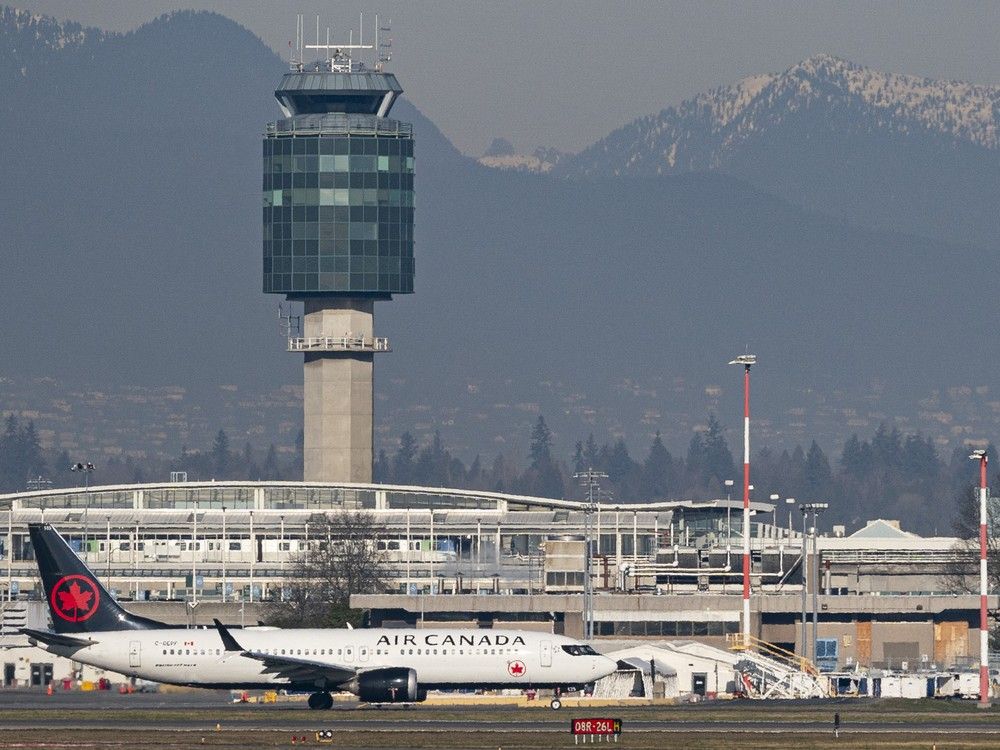
Air Canada and the union representing flight attendants have reached a deal, ending a three-day strike that has disrupted travel plans for thousands of passengers across the country.
The airline said operations will resume Tuesday, although warned it could take seven to 10 days to return to full service.
The labour action, which started Saturday, led to more than 2,000 flights being cancelled, leaving passengers to rebook flights or find alternative means of transportation to get to their destinations and avoid being stranded.

Gábor Lukács, president of advocacy group Air Passenger Rights, slammed Air Canada for its treatment of passengers during the strike.
“Air Canada has been defrauding people, simple as that,” he said. “They have been shirking their responsibility under the APPR (Air Passenger Protection Regulations), never mind EU regulations.”
According to the APPR, in an event of a flight cancellation, Air Canada is required to rebook passengers on a partner airline within 48 hours of their original departure time. Failing that, the airline must book passengers on the next available flight on any carrier, including a competitor, from their airport or a nearby airport.
Many passengers with cancelled flights were told by the airline it was unable to find alternative flights, yet were able to find a flight themselves through another airline, albeit at higher prices.
Lukács described the airline’s response as a “cost-saving measure,” essentially “telling passengers falsely it doesn’t have any flights for them and washed their hands off the matter,” he said.
Now that the strike is over, Lukács breaks down what passengers who paid out-of-pocket should do to claim reimbursement.
My Air Canada flight was cancelled and I had to pay out-of-pocket for my flight with another carrier. Can I get reimbursed?
Under Canada’s Air Passenger Protection Regulations, passengers with cancelled flights due to a strike are entitled to a rebooked flight, including on a partner airline or any airline.
If they weren’t rebooked and had to pay for their own flights, passengers can file a complaint. Earlier this year, WestJet was hit by the Canadian Transportation Agency with a $204,000 penalty for failing to rebook passengers whose flights were cancelled during a WestJet mechanics strike in 2024.
Lukács said affected passengers should write to Air Canada’s chief legal officer and demand to be reimbursed within 30 days. He suggested keeping emotions out of the letter, stick to the facts, and keep it short and professional.
If Air Canada rejects the demand — and they likely will, he said — your next step is to escalate the issue to small claims court or to B.C.’s civil resolution tribunal, said Lukács.
He advised against filing a complaint with the Canadian Transportation Agency because that would void your right to take the airline to small claims court. The agency also has a backlog of 87,000 complaints, so it could take years for the complaint to be resolved.

What about out-of-pocket expenses like meals, hotel stays, and transportation?
That depends on where you are travelling to or from.
Passengers travelling within Canada are out of luck. The APPR does not require airlines to compensate passengers for these expenses if their flight is cancelled due to a strike because it considers labour action to be beyond an airline’s control.
Passengers travelling internationally have more protection.
For those crossing international borders, including the U.S., the Montreal Convention, which governs passenger compensation for cancellations, delays, injuries or baggage loss, kicks in.
It says the airline must compensate you for reasonable expenses such as meals, transportation, and accommodation, as well as lost wages, or prepaid hotel nights or events missed at your destination.
Air Canada might fight or try to deny you compensation, but it is unlikely to succeed in court, said Lukács.
Passengers whose cancelled flight departed from a European Union-member country or the United Kingdom have even stronger protection, thanks to EU air passenger rights, he said.
Unlike the APPR, the EU does not recognize labour action by the airline’s own staff as something beyond the airline’s control. The EU says that such a strike does not release the airline from its obligation to pay compensation.
The EU has set compensation at 300 euros for delays of at least three hours but less than four hours and 600 euros for delays of four hours or more.
“It’s a lump sum compensation in a standardized manner,” said Lukács. “You don’t have to prove yourself inconvenienced. By the fact you’re delayed, it assumes you are inconvenienced.”
The airline is also required to provide “care,” which includes meals, accommodations, ground transportation and communication.
The EU regulations kick in immediately, and do not require passengers to pay out-of-pocket for expenses first then apply for reimbursement.
Have Air Canada flights resumed out of YVR?
Yes. The first Air Canada flight to leave Vancouver International Airport Tuesday was flight AC 216, which left YVR for Calgary just before 1 p.m.
A flurry of international flights — bound for Hong Kong, Seoul and Tokyo — that were scheduled to leave earlier on Tuesday are scheduled to fly out in the afternoon.

YVR said it will have additional staff at the airport to support passengers as Air Canada restarts its operations.
“We’re advising passengers to just make sure they’re checking their flight status before they come to the airport to make sure the flight is still going as the situation will continue to be fluid for awhile,” said airport spokesman Stephen Smart.
In total, 750 Air Canada flights were cancelled due to the job action since Friday.